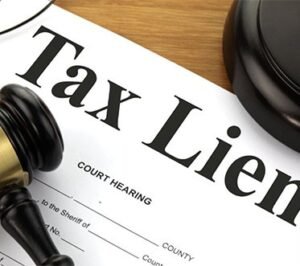January 13, 2025 | 3.5 Minute Read
Two weeks ago, we secured a contract for a property from a reputable and experienced wholesaler for $80K. It required $20K in renovations to convert it into a rental, which made it a great addition to our long-term portfolio, especially with rents in the $1300 range. If we had considered using it as a short-term rental (STR), we’d have had to spend $30K-$35K, or about $45K for a flip.

While either of these options could work, we chose to keep the costs lower by making it a long-term rental.
We always aim for at least two exit strategies, and this property checks most of our buy boxes. Check out my previous post on “Three Strategies for Profiting on Unsold Properties” for additional insights.
The property is a solid 3-bedroom, 2-bathroom home just down the street from one of our short-term rentals, so we are very familiar with the area. The wholesaler is making $10K, and we’re getting a great property — a win for everyone… or so I thought.
A few days ago, the wholesaler called with an update. After running title, it turns out the seller had purchased the tax lien and was selling her interest ino the property. The original owner may still have the right to redeem the property by paying the overdue taxes, interest, and fees within a set timeframe, even after the tax deed is issued. While a tax deed typically clears most liens, certain encumbrances, like federal tax liens or utility easements, might remain. In such cases, buyers must take additional steps, such as filing a quiet title action, to ensure the title is clear and marketable.
In Alabama, the owner has up to three years to redeem the property by paying the tax lien holder. The costs involved in redeeming the property typically include:
Delinquent Taxes: All unpaid property taxes owed at the time of the tax sale.
Interest or Penalty Fees: A percentage of the purchase price or delinquent tax amount, often set by state law, as compensation to the tax deed purchaser.
Tax Sale Costs: Expenses related to the tax sale process, such as administrative or auction fees.
Additional Payments: Any subsequent taxes, penalties, or fees incurred after the sale.
Reimbursement of Buyer Expenses (in some jurisdictions): Costs the tax lien holder incurred, such as property insurance or necessary improvements, if allowed by state law.
The current “owner” made repairs and rented the property for some time. However, after paying the taxes for almost 15 years, they failed to obtain a quiet title after the three-year redemption period.
A quiet title action is a legal process used to confirm the new owner’s clear and marketable title after purchasing property at a tax sale. This process resolves any potential disputes, claims, or lingering interests from previous owners or lienholders. It involves filing a lawsuit, notifying all interested parties, and providing evidence of the tax deed purchase and compliance with legal requirements. If successful, the court issues a judgment that “quiets” any competing claims, ensuring uncontested ownership. In this case, that process was never completed.
None of this appeared in the records because here in Jefferson County, Alabama, the county doesn’t maintain the most up-to-date documentation.
So what does this mean for the property purchase? The seller, with the tax lien, cannot provide a clear and marketable warranty deed at closing — only a quitclaim deed. What’s the difference?
A warranty deed guarantees that the seller has clear title to the property and the legal right to transfer it, free from any encumbrances or claims, except those disclosed. It offers the highest level of protection to the buyer, ensuring compensation if future title disputes arise. Warranty deeds are commonly used in traditional real estate transactions.
A quitclaim deed, on the other hand, transfers ownership interest without any guarantees regarding title. It only conveys whatever interest the seller has at the time, without assurances of a clear title. Quitclaim deeds are often used for transfers between family members or to clear title issues, but they offer less protection to the buyer.
If we buy the property with a quitclaim deed, we would not have clear title and risk future disputes. Since it’s still a tax lien certificate, no title company would issue title insurance. Without title insurance, no hard money lender will finance the deal. The only way to proceed with this purchase is with cash and a quitclaim deed.
While some investors may consider this an acceptable risk, we do not. We would only close if the seller obtains a quiet title, a process that can take up to six months. Until then, we shall pass on this and move on to the next deal.
I usually ask wholesalers whether a property is a tax deed, but because of my close relationship with this experienced wholesaler, I didn’t. She didn’t realize it was a tax deed until the title came back.
The first question you should always ask the wholesaler is, “Is the property being sold with a warranty deed or a tax deed?” When you have the answer, you can then determine your level of interest. Even experienced investors like myself make occasional mistakes—though it’s rare, it does happen, and I’m not afraid to admit it.